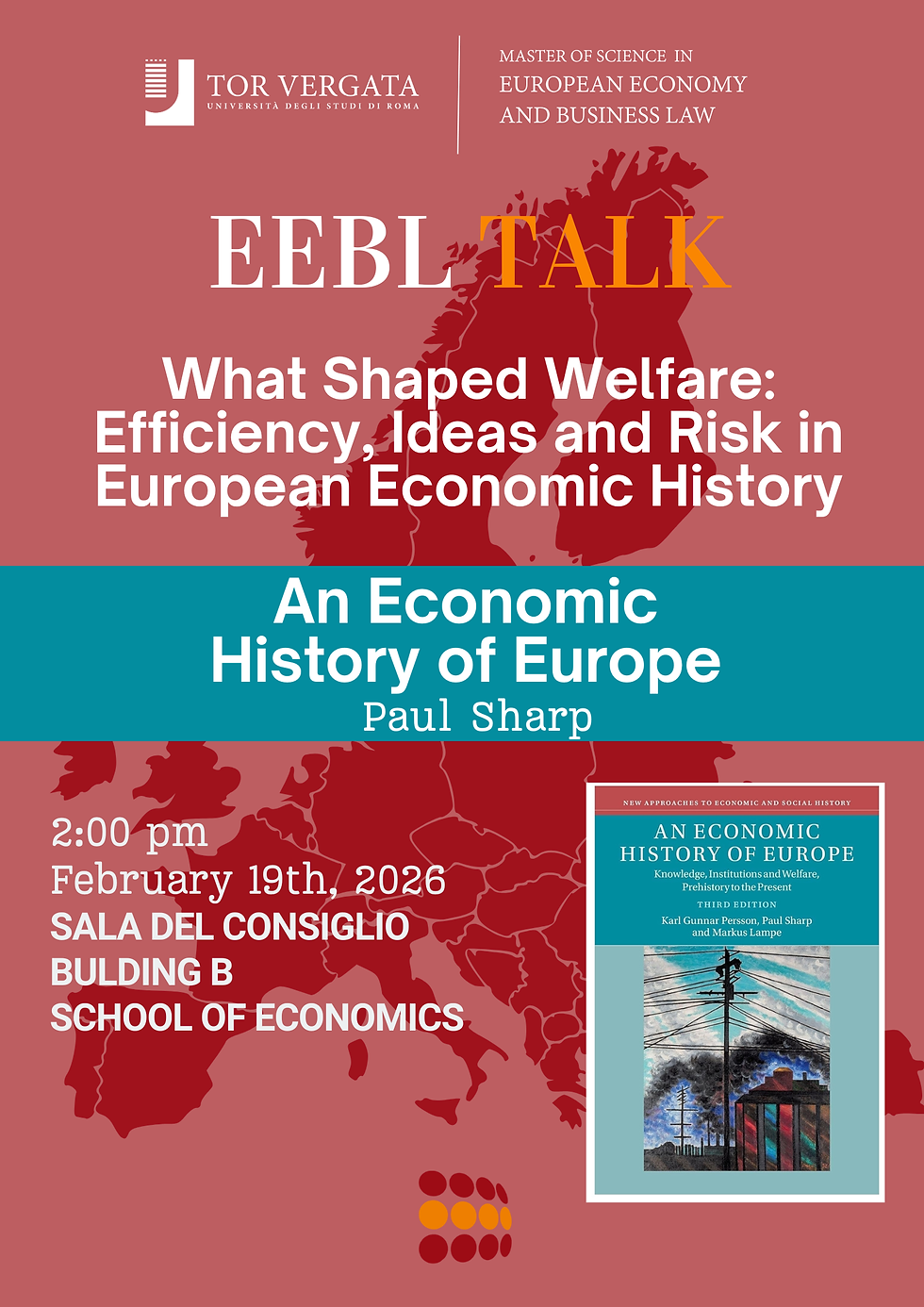CFP: ASSI Meeting 2023 - Doing business between globalisations
- Alessandro Nuvolari
- 11 lug 2023
- Tempo di lettura: 3 min

University of Florence, Campus of Social Sciences, 15-16 December 2023
Phases of global integration and interdependence - characterised by the acceleration of exchanges, trade flows, and transfer of goods, people, and information - represent a long-term configuration of the world economy. Many scholars mostly outline the acceleration of this process during the last two centuries up to the present “hyperglobalisation”, which has followed the end of the Cold War. Others remember that similar phenomena appeared already during the pre-industrial times.
Here, a loose version of the concept of globalisation is proposed, which is seen as the permanent existence of a global market in which the major areas of the world exchange products on an ongoing basis and according to a scale that generates a profound and lasting impact on the players involved in this market. Such a definition implies that the process may have started at least by the early modern age, with the oceanic expansion of Europe, developing later with the creation of new trade routes linking all major areas of the world - from the Indian Ocean to the New World. In this way, people, products, and events originating in one part of the globe would eventually generate permanent and systematic effects on societies all over the world. A vision, therefore, that is not limited to the history of trade, but transcends the limits of economic history by investing cultural, demographic, and social history in general and tends to demonstrate how globalisation is not a recent phenomenon but a long-lasting process. Not least, this process has been possible by the presence of supportive institutions, although in different ways and with different instruments.
Phases of globalization have been followed by inevitable slowdowns and declines in the process of integration and interdependence. Many factors must be recalled to explain this phenomenon. They have an origin in elements of economic, technological, but also political, and ideological nature. The cumulating effect of these factors often culminated in disruptions due to geopolitical conflicts and tensions.
Enterprises and entrepreneurs have been floating into these violent, rapid but sometimes also very long waves of integration and disintegration. They had to adapt their strategies to opportunities and constraints in order to keep or develop their relative role in the economy. Sometimes they succeeded, sometimes not. Their activism opened the door to different assets of the regional, national, or international economy. The reorganization of the economy that followed those events and processes shaped in a different way the world economy. Even for the survivors or the winners of these challenges, the framework in which they were supposed to develop their new strategies was very different. New phenomena of adaptation and resilience figured out the new landscape where old and new merchants, old and new firms, or business groups were included.
The next ASSI conference would like to discuss and compare different forms of integration and interdependence from a long-term perspective. We welcome contributions addressing both the evolution in the general framework of economic integration and interdependence, as well as analysing the strategic behaviour of companies and entrepreneurs facing phases of expansion and contraction of the global economy in different periods of economic history, from the late middle age to the present time.
The event will be held in Italian and in English.
The organizing committee will take into consideration coherent sessions for a maximum of three contributors.
Talk proposals (an abstract of 2,000-3,000 characters and the CV – as well as organized sessions complete with the name, CV and abstracts of participants) must be sent by September 15th, 2023, to the following address: segreteria@assi-web.it
The decisions of the Organizing and Scientific Committee will be announced by September 30, 2023.
The speakers of the accepted papers must send a paper of 40,000-50,000 characters or a long abstract of 10,000 characters by November 20th, 2023.
The participation in the conference is free for ASSI members who paid the membership fee for 2023, For non-members the registration fee is of 50 Euros
Organizing and Scientific Committee: Andrea Colli (chairman) Francesco Ammannati, Marco Bertilorenzi, Veronica Binda (secretary), Valerio Cerretano, Francesco Maccelli, Mario Perugini, Luciano Segreto.




Commenti